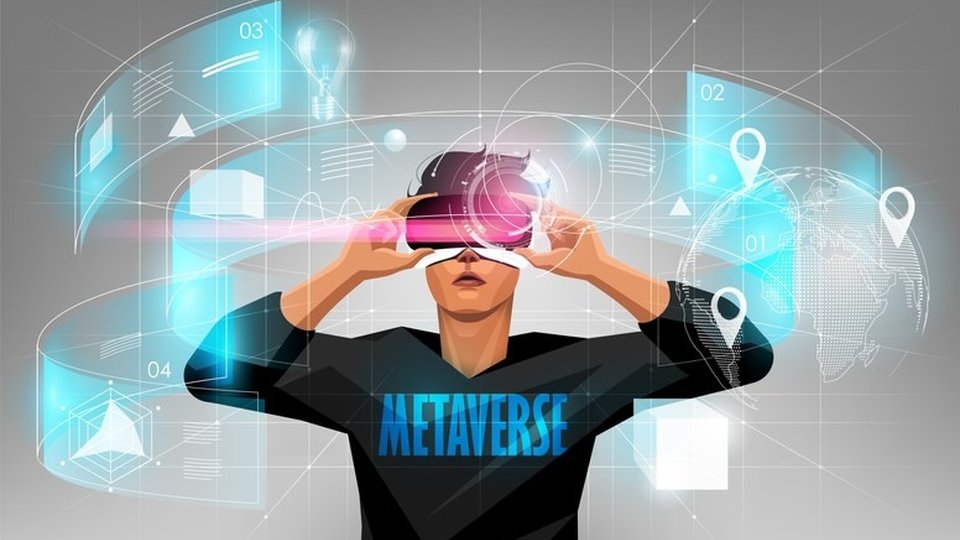Commentary
Freedom to roam in virtual entertainment
As content publishers invest in free roaming hardware and software, location base entertainment caters to a rapidly growing immersive entertainment market.

November 5, 2022 by Kevin Williams
The free-roaming VR market continues to explode with new entrants, but the path to success has been anything but direct for the players to date despite extensive investment.
Against the backdrop of extensive investment in VR hardware and software, the reality of generating revenue from the operation of VR is proven by the commercial entertainment sector, with announcements of new venue openings and new technology launches.
Meta leads a charge
On the investment front, Meta, formerly Facebook, has led the charge with a new range of headsets as part of a focus on what the Metaverse will represent.
The company has revealed plans to launch its Meta Quest Pro with a more compact form factor and updated hardware and software from the original Quest 2 hardware, returning to the black styling.
The Quest Pro is a full price platform speculated at costing around $1,200, incorporating a new pancake lens design compared to the Quest 2's bulkier Fresnel lens. The platform also focuses more on the see-through capabilities, with a mixed reality style approach, as the platform is aimed at professionals rather than consumers, pushing its use in Horizon Workrooms, Meta's remote working app service, and positioning the Quest Pro as offering the opportunity to replace the laptop.
This system hopes to define the company's Metaverse aspirations, soon to be in direct competition with Apple which is about to launch its own mixed reality focused headset.
At the same time, Meta has acquired game developers such as Beat Games, Downpour Interactive and BigBox VR, although this seems more towards securing control of popular content than building a production line of game titles.
Competitors emerge
An FCC filing, meanwhile, revealed that Pico plans to release its own VR headset ahead of the Meta Quest Pro, boasting many of the same advanced features and hoping to offer direct competition to controlling the consumer VR space in Europe, as well as America and China.
Revealed was the "Pico Neo 4," a working title, the latest in the Pico VR range of headsets, but rather than competing with the Meta Quest 2 as had the Pico Neo 3, this version has the Quest Pro squarely in its sights.
For example, it uses the pancake display lens that is planned for Quest Pro and will include advanced eye-tracking — an element that now seems essential for any headset hoping to survive in the market — along with other advanced features.
Pico is owned by TikTok owners ByteDance, and the implementation of social media support elements is another expected feature.
Here comes Sony
It was also recently revealed that Sony Interactive Entertainment has plans in this direction. The company revealed more details of its planned Sony Playstation VR2 launch, and shared information on the features of the new hardware to its million-unit-selling original VR headset.
The PSVR2 will include a new see-through component, allowing the users to see the world around them while wearing the headset — a feature seen originally on HTC Vive headsets and recently on the Meta Quest range.
But the big news was the broadcast feature, meaning players can stream themselves in their VR experience. Social media and influencer gaming ("Let's Play") are big on Youtube and TikTok, and the ability to create this content is essential.
Other VR headsets have tried to offer this element as a seamless feature but have yet to see popularity.
LBEs embrace free roaming
While Meta may have decided to not support its Oculus Quest Arena concept, the free-roaming entertainment market has grown considerably in its application in location-based entertainment. There are numerous new entrants using high-end and standalone performance VR platforms, offering groups of players the ability to experience cooperative virtual adventures.
The development of venues that offer free-roaming VR experience has been seen with the since aborted TheVOID concept (aborted, but due to make a return to the business under new management), as well as from Dreamscape Immersion and from industry pioneer Zero Latency.
One of those also leading the charge in this space is SandboxVR. The Hong Kong based corporation has dusted itself off from the privations of lockdown and started running again, having opened over 20 more locations to its chain, utilizing the $119 million investment gathered to define the operation internationally.
This investment has also gone to updating the technology and starting to partner with franchise operators to spread the word. An example of this move towards a franchise model was seen in London with the opening of the first Sandbox VR location in this territory.
At the launch event, a central London retail unit had been developed into a four-arena virtual entertainment space, boasting full body tracking, Pico Neo 3 VR headsets and HP backpack PCs. The players also wear the latest haptic vests and weapons for added immersion.
The venue was also the first to incorporate a food and beverage component, incorporating a robotic bartender system, offering a competitive socializing vibe. The venue is looking not just at city workers and drop in traffic, but also establishing an offering for corporate events and private hire — building a new facet to the Sandbox VR model.
London calling
London, and the surrounding area, has seen several new free-roaming venues open and grow their brands.
MeetSpace VR recently updated its location with the latest Zero Latency content, developed in partnership with Ubisoft to offer "FarCry" VR adventures based on the popular videogame IP.
The DNA VR chain of three venues has also offered new free-roam experiences and is celebrating its fifth year in operation. Outside the capital, in the city of Leicester, the new operation Roamdome opened, offering its own free-roaming VR experiences, using the standard TrueVRsystem technology and game experiences — already popular in Europe.
London is due to see another new free-roaming experience opening in the Westfield Mall. Developed by Czech-based Divr Labs, the operation is rolling out a chain of VR adventure venues based on their experience in the market.
Having driven sites based on its technology for operators, the company has now received investment to open its own venues called Divr Labs Arena. The first opened in the Westfield Mall of Scandinavia in Stockholm early this year, and the London venue will be following soon — the VR arenas offer a more adventure-based experience, appealing to a wider audience.
The company has experiences such as its "Meet the Dinosaurs," appealing to families of all ages, and has moved away from the restrictions of backpack PCs, achieved through streamed high-end VR experiences, with guests wearing HTC Vive Focus 3 headsets.
This adventure style approach allows the venue to offer a capacity of 48 guests per hour, with a flow model through their centralized VR space. Divr Labs has its own plans for a wide rollout of this chain internationally.
The VR free-roaming market is an aspect of the immersive entertainment scene that is seeing many new entrants and considerable investment.
(Editor's note: Extracts from this blog are from recent coverage in The Stinger Report, published by Spider Entertainment and its director, Kevin Williams, the leading interactive out-of-home entertainment news service covering the immersive frontier and beyond.)
About Kevin Williams
Along with advisory positions with other entrants into the market he is founder and publisher of the Stinger Report, “a-must-read” e-zine for those working or investing in the amusement, attractions and entertainment industry. He is a prolific writer and provides regular news columns for main trade publications. He also travels the globe as a keynote speaker, moderator and panelist at numerous industry conferences and events. Author of “The Out-of-Home Immersive Entertainment Frontier: Expanding Interactive Boundaries in Leisure Facilities,” the only book on this aspect of the market, with the second edition scheduled for a 2023 release.
 ChatGPT
ChatGPT Grok
Grok Perplexity
Perplexity Claude
Claude






